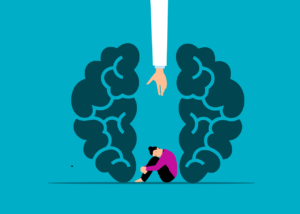Intro
Are you a night owl who stays up late into the night and struggles to wake up in the morning? While it may seem harmless to indulge in late-night activities, research shows that staying up late could actually have serious consequences on your health. In this blog post, we will explore the connection between sleep disorders and the risk of early death, particularly for those who stay up late. Sleep deprivation is a prevalent issue in today's society, and understanding its impact on health is crucial for overall well-being.
Understanding the Biological Clock and Its Impact on Health
The circadian rhythm, our body's innate biological clock, plays a pivotal role in managing our daily sleep-wake cycles. It is attuned to the natural environment, particularly the cycle of light and darkness, which informs the body when to feel alert and when to wind down. Disruptions to this delicate balance, such as those caused by late-night activities, can lead to significant sleep disturbances. These disturbances are more than just minor inconveniences; they represent a profound misalignment between our physiological processes and the external environment. This misalignment can result in sleep disorders that not only affect the quantity but also the quality of our sleep.
Crucially, the impact of a disrupted circadian rhythm extends beyond poor sleep. It touches on various aspects of our health, influencing hormone levels, body temperature, and even the timing of cellular repair processes. When our biological clock is consistently out of sync, it can exacerbate or increase the susceptibility to a range of health conditions. For example, it can alter metabolic functions, leading to weight gain and increased risk for metabolic syndrome. Likewise, it can affect mental health, contributing to feelings of lethargy during the day and heightened stress levels, which can further disturb sleep patterns.
Given the intricate relationship between our biological clock and health, it becomes clear why maintaining a regular sleep schedule aligned with our circadian rhythm is fundamental. Engaging in behaviors that conflict with our body's natural sleep-wake cycle not only predisposes us to immediate sleep challenges but also sets the stage for longer-term health complications. Recognizing the critical role that this internal clock plays in our overall health is the first step towards adopting practices that support rather than hinder our well-being.
The Connection Between Sleep Deprivation and Chronic Diseases
The link between insufficient sleep and the onset of chronic conditions is both profound and concerning. Sleep, a fundamental component of our health, acts as a restorative process for the body, supporting immune function, metabolism, and cardiovascular health. When deprived of adequate sleep, our body's ability to perform these essential functions diminishes, setting the stage for long-term health issues. Chronic sleep deprivation has been closely associated with an increased risk of serious medical conditions such as cardiovascular disease, type 2 diabetes, and obesity.
The mechanism behind this link involves several physiological processes. For example, inadequate sleep can lead to imbalances in hormones that regulate appetite, such as ghrelin and leptin, which can result in increased hunger and caloric intake, contributing to obesity and its related complications. Similarly, sleep deprivation can cause increases in blood pressure and stress hormones, which strain the heart and circulatory system, laying the groundwork for cardiovascular disease. Furthermore, the body's ability to regulate blood sugar becomes compromised with insufficient sleep, elevating the risk for type 2 diabetes by affecting how the body processes glucose.
The evidence supporting these connections underscores the importance of prioritizing sleep as a pillar of health, comparable to a balanced diet and regular exercise. Ignoring the body's need for restorative sleep not only impacts immediate well-being but also increases the vulnerability to chronic diseases that can significantly shorten lifespan. Therefore, understanding and addressing sleep deprivation is crucial in preventing these long-term health complications, highlighting the imperative need to adjust our lifestyles and behaviors to ensure adequate, quality rest each night.
Mental Health Risks Associated with Being a Night Owl

The tendency to stay awake into the wee hours of the morning does more than just alter sleep patterns; it has a profound impact on mental health. Individuals who classify themselves as night owls often face a unique set of psychological challenges. Research has illuminated a troubling link between nocturnal lifestyles and an increased prevalence of mental health disorders. This connection is rooted in the disturbance of the circadian rhythm, which, when disrupted, can significantly influence one's emotional and psychological state.
Among the mental health concerns observed more frequently in night owls are depression and anxiety. The alteration in sleep-wake cycles can exacerbate feelings of sadness, hopelessness, and nervousness. The lack of exposure to natural light, which plays a crucial role in regulating mood, can further intensify these symptoms. Additionally, the solitude of nighttime can lead to social isolation, compounding feelings of depression and anxiety by reducing opportunities for social interaction and support.
Moreover, the erratic sleep patterns associated with staying up late can lead to significant stress, as the body struggles to maintain its natural rhythm in the face of inconsistent sleep schedules. This stress not only affects mental well-being but can also trigger mood disorders, leaving individuals feeling more irritable, emotionally volatile, and susceptible to mood swings.
Complicating matters further, the pursuit of activities that keep people awake at night—such as screen time on computers or smartphones—can suppress the production of melatonin, the hormone responsible for regulating sleep, thereby aggravating mental health issues. The light emitted from screens can deceive the brain into thinking it is still daylight, disrupting the natural sleep cycle and potentially leading to insomnia.
Given these interconnected risks, it is evident that the lifestyle of a night owl can have serious repercussions for mental health. Acknowledging and addressing these risks is crucial for those seeking to improve their psychological well-being and quality of life.
Social and Lifestyle Factors That Encourage Unhealthy Nighttime Habits
In our modern world, the blurring of day and night through technology and societal pressures has played a significant role in fostering unhealthy nighttime habits. The prevalence of digital devices is a primary factor, with endless streams of entertainment and information at our fingertips keeping us engaged and awake well into the night. This constant connectivity not only delays sleep time but also disrupts sleep quality due to the blue light emitted by screens, which interferes with melatonin production.
Cultural shifts towards a 24/7 society have also contributed to the normalization of late-night activities. From late-night dining and entertainment options to round-the-clock work demands, these societal changes have made it more acceptable, and sometimes necessary, to adopt nocturnal lifestyles. The pressure to stay connected and responsive to work emails and social media updates further encroaches on what should be restful hours, leading to fragmented sleep or sleep deprivation.
Peer influence and social engagements often encourage staying up late as well, with many social events starting later in the evening. This can create a cycle where sleep is sacrificed for socializing, which then impacts daytime productivity and mood, perpetuating reliance on caffeine or stimulants to stay awake and further impairing sleep patterns.
Environmental factors, such as living in urban areas where noise and light pollution are prevalent, can also hinder our ability to maintain natural sleep rhythms. Bright streetlights and loud city sounds disrupt the peaceful environment needed for deep, restorative sleep.
Understanding these social and lifestyle factors is crucial in recognizing the barriers to healthy sleep habits. Awareness and intentional efforts to mitigate these influences can pave the way for improved sleep hygiene and overall well-being.
Strategies to Shift Your Sleep Schedule for Better Health
Adopting healthier sleep habits is vital for those looking to transition from night owl tendencies to a more conventional sleep schedule. One practical step is setting a consistent bedtime and wake-up time, even on weekends. This consistency reinforces your body's internal clock and can gradually ease you into a new routine. Dimming lights and reducing noise in your bedroom an hour before your intended sleep time can also signal to your body that it's time to wind down, enhancing your ability to fall asleep more naturally.
Investing in a comfortable mattress and pillows can significantly improve sleep quality, making the transition smoother. Additionally, consider the temperature in your bedroom; a cooler environment is generally more conducive to sleep.
Limiting caffeine and heavy meals in the hours leading up to bedtime can prevent sleep disturbances. Instead, opting for light snacks that won't upset your stomach can be beneficial. Regular physical activity during the day, particularly in the morning or afternoon, can promote better sleep at night, though it's best to avoid vigorous exercises close to bedtime as they can have the opposite effect.
Mindfulness practices, such as yoga or journaling, can also prepare your mind for a restful night by alleviating stress and anxiety that might keep you awake. Finally, if you find yourself lying in bed unable to sleep, it's better to get up and engage in a quiet, relaxing activity until you feel sleepy again rather than tossing and turning, which can associate your bed with wakefulness.
Implementing these strategies can not only help shift your sleep schedule but also improve the overall quality of your sleep, contributing to better health and reduced risk of the conditions associated with sleep deprivation.






